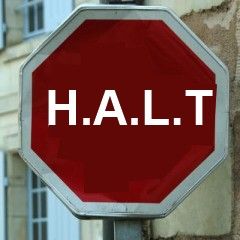If you’ve listened to the show…
Please click our audience survey button so we can better understand who’s listening.
(It takes about 1 minute to complete and it’s 100% anonymous.)

Thank you!
Shownotes for Episode 13 Wine lovers have God to thank + guest Doug Jackson
Podcast: Play in new window | Download (Duration: 48:24 — 66.5MB) | Embed
Subscribe to Spark My Muse Apple Podcasts | Spotify | Email | TuneIn | RSS | Subscribe to Spark My Muse
First, I want to feature the book Doug and I wrote …
entitled Dog in the Gap because of a C.S. Lewis quote “Man and his dog close a gap in the universe”.
And there’s a BONUS EDITION with lots of goodies!
Read a sample here!
Will you fan the spark?
Inspired by how musician Amanda Palmer put it, “Don’t make people pay [for art]. Let them,” I am altering how Spark My Muse stays alive…from bottom to top (literally).
How does it work?
It’s up to you. I need at least $75 per episode to keep it solvent.
Every little bit helps!
So, I invite you to just listen, read, and give as you can.
Thank you! Enjoy the show!
With love,
~Lisa
WINE SEGMENT:
Who do we have to thank for wine?
God and the Church, actually.
Wine lovers in Western civilization have the Church in Europe (and the Roman Empire and the Holy Roman Empire–which was neither holy nor Roman ) to thank for the large-scale production, the prevalence and the excellence of wine!
Why?
Because liturgy involving wine for communion was central to Christian religious practice. Wine was ingested as the saving holy blood of Christ (and bread as the holy body of Christ), usually each and every day. The sacraments of Communion served as saving grace afforded to the Church.
As Roman Empire became officially a Christian Empire (circa 313 CE) many vineyards had to be planted, properly cultivated, and harvested. Grapes had to be made into a lot of to support the daily practice of communion throughout the Empire.
Communion served as wine was the norm among Christians world-wide until recently–in the era of pasteurization. To keep juice from grapes in a state were they would not ferment meant it had to be sufficiently boiled so the natural yeast would die.
Vehemently opposed to alcohol, Thomas Bramwell Welch, a physician, dentist, and Methodist pastor from Vineyard, New Jersey, figured out the process in 1869 with Concord grapes. Most churches did not accept the switch as proper and stayed with wine.
The juice later became more popular during Victorian era because of prominent values of abstinence. A shift then began in the U.S. that made grape juice the main communion beverage (at least among certain Protestants sects).
Several hundred vineyards operating in Europe today can trace their history to monastic origins.
In the 9th-15th centuries almost 1,000 monasteries dotted Europe. They were centers of education, stability, and technical innovation. Monks and nuns could read and write–this was quite uncommon then.
Monasteries cared for the sick, helped the poor, created places of education, and invented Universities. They could not fund all this through donations. Surplus wine was sold to finance ministry work (and also beer, fruit brandies, and cheese, among many other things..even prayers and Salvation ..which–in hindsight–appears to have been a mistake ) .
So, basically, thank God (and many monks) for wine!
Sparking your muse
Enjoy the fantastic chat with Doug Jackson!

Douglas Jackson, D.Min.
Director of the Logsdon Seminary Graduate Program
Doug Jackson came to SCS in 2006, after serving as pastor of Second Baptist Church, Corpus Christi, since 1993. In addition to teaching courses, Dr. Jackson functions as a liaison between Logsdon Seminary and local churches in Corpus Christi. His areas of specialization include spiritual formation and pastoral ministry. Dr. Jackson has published and presented several articles and essays in religious and literary venues, including articles and lectures on the life and writings of C.S. Lewis.
• D.Min. – Truett Seminary (2006)
• M.Div. – Southwestern Baptist Theological Seminary (1985)
• B.A. – English Literature, Grand Canyon College (1982)
His blog is here.
Interview / chat notes:
MIN 8:00
on Doug preparing for a his Fall class.
A resource he is using by NT Wright – “The new perspective on Paul”
The covenant people God has saved.
8:50
Reformers and the necessary correction in contemporary times.
9:00
Confronting individualism
and thoughts on human flourishing.
9:50
on the idea of being “spiritual but not religious”
10:30
on his work about CS Lewis
Mere Christianity
11:00
The importance of imagination for understanding that isn’t covered by rationalism.
12:30
on his Oxford lecture
Owen Barfield an influential life-long friend of CS Lewis
Another lecture on Walter Miller – A Canticle for Leibowitz
Apologetic self-proclaimed validity on the rational scheme of knowing.
“Scholarship is about knowing more and more about less and less so that eventually you know everything about nothing.”
14:30
James Sire
15:70
Malcolm Guite https://www.facebook.com/malcolm.guite
Chaplain of Gerton college and Cambridge
“Faith Hope and Poetry”
He covers the imagination as a way of knowing (an epistemology).
Holly Ordway
Houston Baptist University
“Not God’s Type”
Her 2-track movement toward conversion
18:00
Brainpickings.com Maria Popova (an admitted secular atheist on a continual spiritual search)
19:00
on Spiritual atheism
….if we come up with a system that covers everything (Christians and Atheists alike)…
“Humans are sensitive and emotionally vulnerable to a wasteful degree evolutionarily speaking…highly valuing the arts.” (Lisa)
Christ in the Desert Benedictine Monk and Abbot
Philip Lawrence, New Mexico
…slipping in and out of atheism….
21:30
HG Wells, and the fundamentalist reaction to him and others of his ilk.
on how science and religious circles have had an absolute unwillingness to be in one another presence and (have not wanted) to admit any weaknesses and (instead) just shout louder.
22:20
“The best apologetics can do is make Christianity credible and I don’t think it can make it inevitable.”
22:30 “Any belief in any ideal is still a leap of faith for anyone… like Justice, Love, Hope…” (Lisa)
23:30
on How people appeal to a standard outside themselves. (CS Lewis)
24:00
Theories of “survival behavior value” for Morality and Justice kicks the can. or it lands on simple absurdity and meaninglessness where suicide becomes a valid option.
25:00
Doug answering the question….”Is fundamentalism evolving”?
26:00
Richard Foster’s classic over 50 years old “Celebration of Discipline”
27:20
A story of a crucial pivot point for Doug.
28:20
How the psalmists had to cry out to God when the answers didn’t suffice any longer. For us, this is a return more than a departure.”
“I have gained the gift of being able to respect other traditions and admire things they bring us, but I talk to people across that spectrum that have that experience.”
29:30
“We go from trusting our denominational address or theology address to trusting Christ but it doesn’t mean an abandonment of it. Choosing a room in the same house to live in.”
30:10
Spiritual disciplines most meaningful to him:
On solitude and privacy (the difference). Henri Nouwen explains the difference.
Henri Nouwen explains in “Out of Solitude”
Doug: Solitude is for battle. Privacy is to be alone.
31:00
Demons come in our solitude (Desert Fathers). The outcome is awareness and purification.
32:00
Wanting “the listening heart” (what Solomon really asked God for).
on the importance of listening to God…
33:30
My Stockholm syndrome at parties. (Lisa)
34:00
“(My) Inability to be with people was driven by a failure to have a real self.”
34:30
“you are nearer to me than my own self.” Augustine
Doug realized:
“My real Self can’t be with people because it’s threatened by them, because they’re going to colonize my Self and going to make me into something I’m not. As opposed to having a real Self that can listen because God is protecting that Self.”
Father Francis Kelly Nemeck wrote
The way of Spiritual Direction (his director)
…Doug and I discuss Detachment and Holy Indifference…
39:00
St John of the Cross
(Exploring the spiritually obscured times and darker emotions.)
“the nada” (God is “no thing” the silence before God
40:00
…on staying in the problems and not panicking.
41:00
…on the crucial lesson from his mom that revealed his theology
44:30
(unknowing) Apophetic theology
“John of the Cross didn’t want that we should abandon the metaphors but move through them.”
45:00
“We cannot encapsulate God in our Theology.”
(which is terrifying but life-giving)
46:00
[GOOD NEWS]
Further exploration in a future episode of John of the Cross with Doug coming soon!
If you enjoyed the show please give it a stellar review on iTunes here!
Watch for new episodes each Hump Day (Wednesday).








